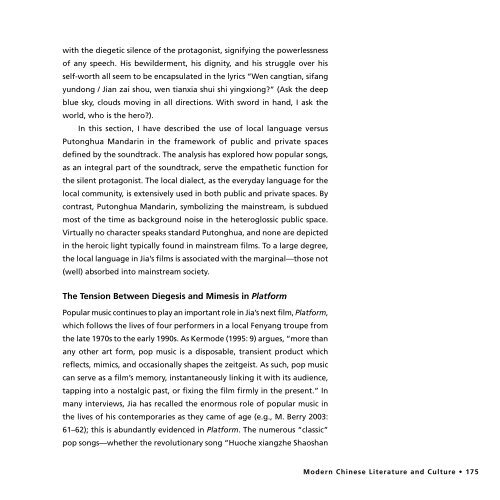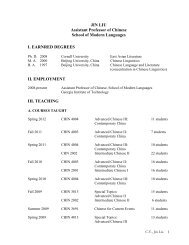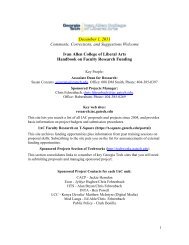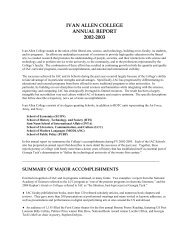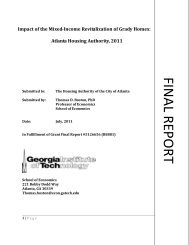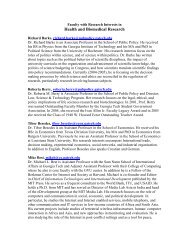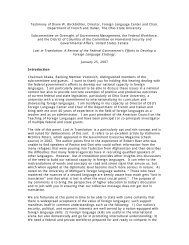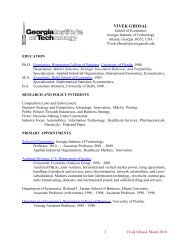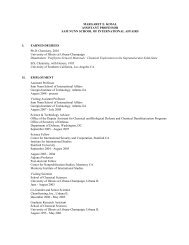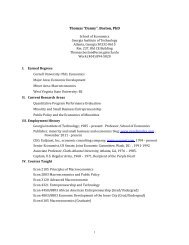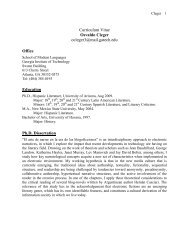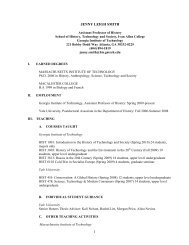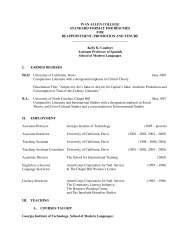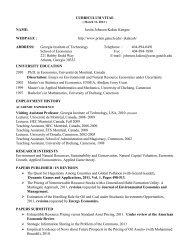Read this paper
Read this paper
Read this paper
Create successful ePaper yourself
Turn your PDF publications into a flip-book with our unique Google optimized e-Paper software.
with the diegetic silence of the protagonist, signifying the powerlessness<br />
of any speech. His bewilderment, his dignity, and his struggle over his<br />
self-worth all seem to be encapsulated in the lyrics “Wen cangtian, sifang<br />
yundong / Jian zai shou, wen tianxia shui shi yingxiong?” (Ask the deep<br />
blue sky, clouds moving in all directions. With sword in hand, I ask the<br />
world, who is the hero?).<br />
In <strong>this</strong> section, I have described the use of local language versus<br />
Putonghua Mandarin in the framework of public and private spaces<br />
defined by the soundtrack. The analysis has explored how popular songs,<br />
as an integral part of the soundtrack, serve the empathetic function for<br />
the silent protagonist. The local dialect, as the everyday language for the<br />
local community, is extensively used in both public and private spaces. By<br />
contrast, Putonghua Mandarin, symbolizing the mainstream, is subdued<br />
most of the time as background noise in the heteroglossic public space.<br />
Virtually no character speaks standard Putonghua, and none are depicted<br />
in the heroic light typically found in mainstream films. To a large degree,<br />
the local language in Jia’s films is associated with the marginal—those not<br />
(well) absorbed into mainstream society.<br />
The Tension Between Diegesis and Mimesis in Platform<br />
Popular music continues to play an important role in Jia’s next film, Platform,<br />
which follows the lives of four performers in a local Fenyang troupe from<br />
the late 1970s to the early 1990s. As Kermode (1995: 9) argues, “more than<br />
any other art form, pop music is a disposable, transient product which<br />
reflects, mimics, and occasionally shapes the zeitgeist. As such, pop music<br />
can serve as a film’s memory, instantaneously linking it with its audience,<br />
tapping into a nostalgic past, or fixing the film firmly in the present.” In<br />
many interviews, Jia has recalled the enormous role of popular music in<br />
the lives of his contemporaries as they came of age (e.g., M. Berry 2003:<br />
61–62); <strong>this</strong> is abundantly evidenced in Platform. The numerous “classic”<br />
pop songs—whether the revolutionary song “Huoche xiangzhe Shaoshan<br />
Modern Chinese Literature and Culture • 175<br />
MCLC 18.2.indd 175<br />
12/20/06 2:01:36 PM


